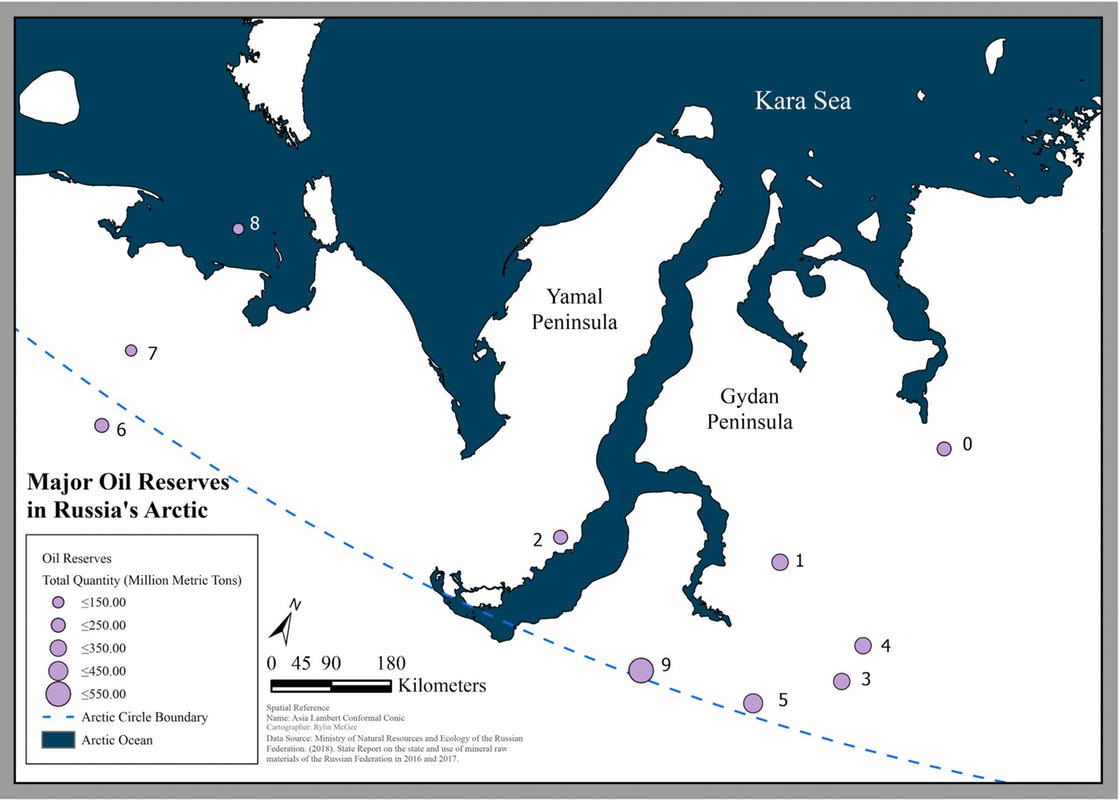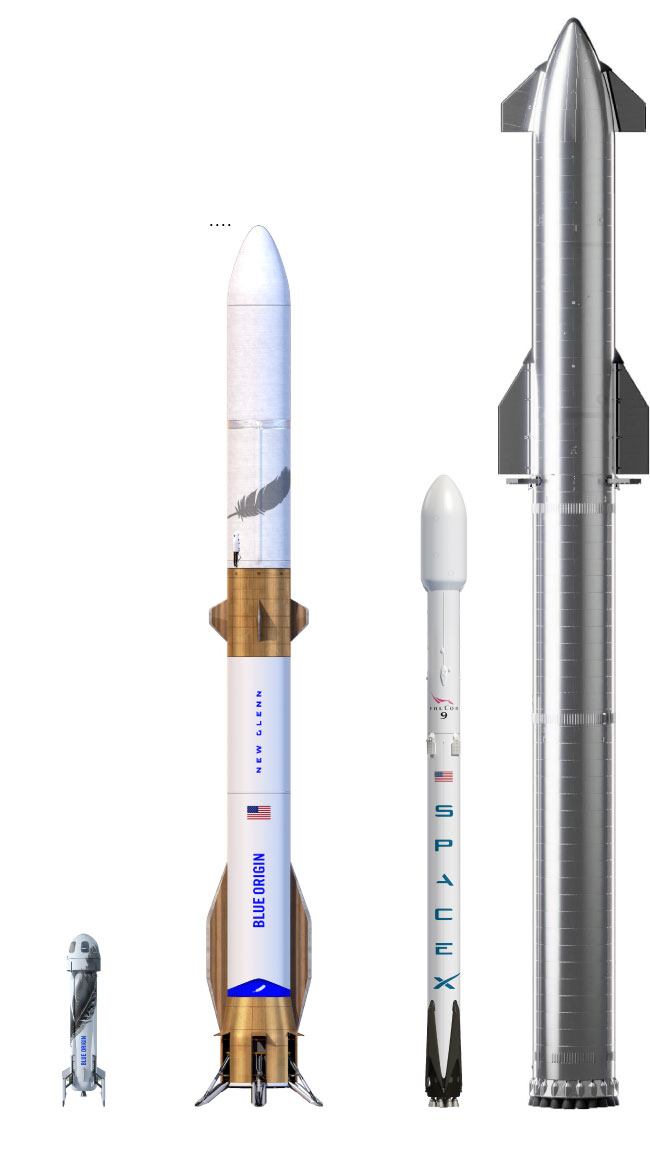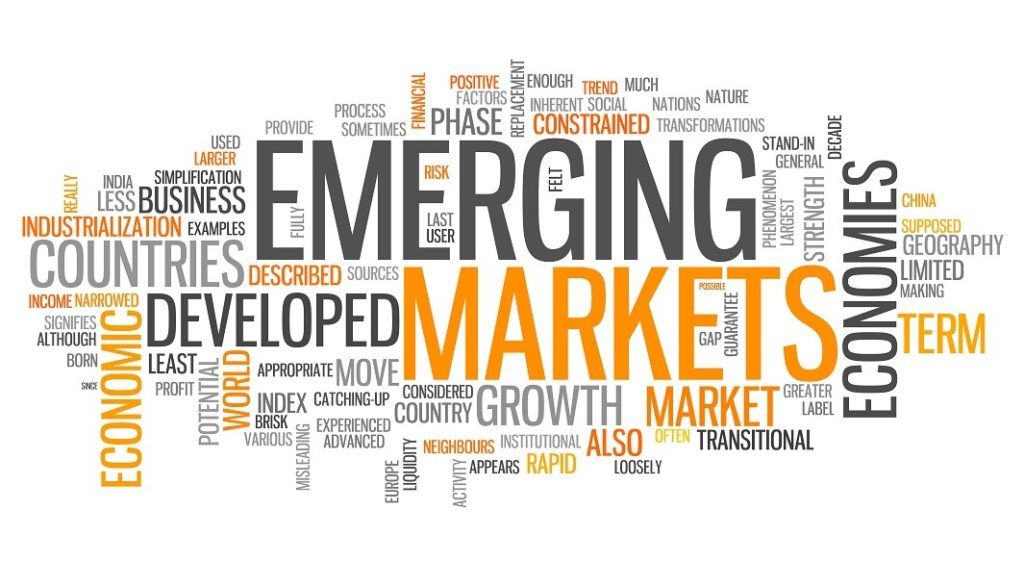Investigating The Link Between European Shipyards And Russia's Arctic Gas Trade

Table of Contents
The Demand for Ice-Class Vessels in Russia's Arctic Gas Projects
Russia's ambitious Arctic gas projects, aiming to exploit vast reserves in the region, necessitate a robust and specialized fleet of ice-class vessels. This demand has created a significant opportunity for global shipyards, particularly those with experience in building vessels for extreme environments.
The Unique Challenges of Arctic Shipping
Arctic shipping presents unique challenges unlike any other maritime environment. The extreme cold, unpredictable ice conditions, and long distances demand vessels with exceptional capabilities. This includes:
- Icebreakers: Powerful vessels designed to break through thick ice, creating paths for LNG carriers and other support ships.
- Reinforced Hulls: LNG carriers require reinforced hulls to withstand the immense pressure and impact of ice.
- Specialized Support Vessels: A range of support vessels, including tankers, supply ships, and rescue vessels, are also needed to facilitate operations in the Arctic.
- Advanced Navigation Systems: Sophisticated navigation and communication systems are crucial for safe and efficient operation in the challenging Arctic environment.
Building these specialized ice-class vessels demands cutting-edge technology and engineering expertise, highlighting the need for highly skilled shipyards.
Key Players in Russia's Arctic Gas Development
Yamal LNG, located on the Yamal Peninsula, is a prime example of Russia's Arctic gas development. This massive project, a joint venture between Novatek, TotalEnergies, CNPC, and others, requires a large fleet of ice-class LNG carriers for the efficient transportation of liquefied natural gas to global markets. Other significant projects further increase the demand for specialized Arctic shipping.
- Significant Investment: Billions of dollars have been invested in infrastructure, including ports, pipelines, and the specialized vessels themselves.
- Massive Gas Volumes: The volume of gas transported from these Arctic projects represents a significant portion of the global LNG trade, highlighting the importance of reliable and efficient shipping.
The Role of European Shipbuilding Expertise
Initially, European shipyards, renowned for their technological prowess and experience in building specialized vessels, were favored for the construction of ice-class vessels for Russian Arctic projects. This was partly due to:
- Technological Advantage: European shipyards possessed the expertise and technology necessary to build vessels capable of withstanding the harsh Arctic conditions.
- Joint Ventures & Collaborations: Several collaborations between European and Russian companies facilitated the transfer of technology and expertise. Specific European shipyards, though often kept confidential due to geopolitical sensitivities, played a key role in this initial phase of Arctic gas development.
The Impact of Geopolitical Sanctions and International Pressure
The annexation of Crimea in 2014 and the ongoing conflict in Ukraine led to a series of international sanctions against Russia, significantly impacting the country's economic relations, including its shipbuilding sector.
Sanctions Imposed on Russia
Sanctions have targeted various aspects of Russia's economy, including:
- Financial Restrictions: Limits on access to international finance have hindered the ability of Russian companies to fund large-scale shipbuilding projects.
- Technology Transfer Restrictions: Restrictions on the transfer of sensitive technologies, potentially impacting the design and construction of advanced ice-class vessels.
- Trade Embargoes: Restrictions on trade with certain countries have complicated the procurement of necessary components and materials.
Shifting Alliances and Diversification
In response to sanctions, Russia has been actively seeking alternative partners and technologies for its Arctic gas projects. This includes:
- Shift Towards Asian Shipyards: Increased reliance on shipyards in China and South Korea for the construction of ice-class vessels.
- Investment in Domestic Shipbuilding: Significant investments in developing domestic shipbuilding capacity within Russia to reduce reliance on foreign partners.
Ethical Considerations and Environmental Concerns
The environmental impact of Arctic gas extraction and transportation is a growing concern:
- Risk of Oil Spills: The potential for oil spills in the fragile Arctic ecosystem poses a significant environmental threat.
- Damage to Arctic Ecosystems: The disruption of Arctic wildlife habitats and the impact on indigenous communities are key ethical considerations.
- Greenhouse Gas Emissions: The extraction and transportation of natural gas contribute to greenhouse gas emissions, exacerbating climate change. The involvement of European companies in these projects raises ethical questions about their contribution to environmental damage.
The Future of European Shipyards' Involvement in the Arctic Gas Trade
The future of European shipyards’ involvement in the Arctic gas trade remains uncertain, balancing economic interests with geopolitical realities.
Balancing Economic Interests with Geopolitical Realities
European shipyards face a complex challenge: the need to balance economic opportunities with the potential risks associated with continued involvement in Russian projects, considering ongoing geopolitical tensions and ethical concerns.
- Future Collaboration Challenges: The possibility of future collaborations depends significantly on the resolution of geopolitical conflicts and the easing of sanctions.
- Economic Viability: The long-term economic viability of continued involvement will be determined by the evolving geopolitical landscape and the demand for Arctic gas.
Technological Advancements and Future Vessel Designs
Ongoing research and development are pushing the boundaries of ice-class vessel technology:
- Advanced Propulsion Systems: Developments in propulsion systems are enhancing efficiency and reducing environmental impact.
- Improved Hull Designs: Innovations in hull design aim to increase ice-breaking capabilities and reduce stress on the vessel structure.
- Environmentally Friendly Vessels: Research into alternative fuels and more sustainable designs is crucial for reducing the environmental footprint of Arctic shipping.
The Long-Term Outlook for Arctic Shipping and Gas Transportation
The future of Arctic shipping and gas transportation is closely tied to several factors:
- Climate Change: Melting ice is increasing the accessibility of the Arctic, but also presents new challenges in terms of navigation and environmental protection.
- Global Demand for Gas: The long-term global demand for natural gas will play a significant role in determining the future growth of the Arctic gas trade.
- Geopolitical Stability: The stability of the geopolitical landscape will be crucial in shaping the future of collaborations between European shipyards and Russia.
Conclusion
The relationship between European shipyards and Russia's Arctic gas trade is intricate and deeply impacted by geopolitical dynamics. While European expertise in ice-class vessel construction was initially crucial, sanctions and ethical considerations have introduced significant complexities. The future will likely see a shift towards diversification and a greater focus on balancing economic interests with geopolitical realities and environmental responsibility. Continued investigation into the link between European shipyards and Russia's Arctic gas trade is essential for understanding the future of Arctic shipping and the broader geopolitical landscape. Therefore, further research into the evolving dynamics of European shipyards and Russia's Arctic gas trade is crucial.

Featured Posts
-
 Blue Origin Rocket Launch Cancelled Subsystem Issue Investigation Underway
Apr 26, 2025
Blue Origin Rocket Launch Cancelled Subsystem Issue Investigation Underway
Apr 26, 2025 -
 Trumps Tariffs Ceos Detail Negative Impact On Economy And Consumer Confidence
Apr 26, 2025
Trumps Tariffs Ceos Detail Negative Impact On Economy And Consumer Confidence
Apr 26, 2025 -
 Macon County Building Permit Information A Current Overview
Apr 26, 2025
Macon County Building Permit Information A Current Overview
Apr 26, 2025 -
 Wga And Sag Aftra Strike A Joint Hollywood Production Shutdown
Apr 26, 2025
Wga And Sag Aftra Strike A Joint Hollywood Production Shutdown
Apr 26, 2025 -
 The Countrys Emerging Business Hubs A Geographic Analysis
Apr 26, 2025
The Countrys Emerging Business Hubs A Geographic Analysis
Apr 26, 2025
Latest Posts
-
 Nbc Los Angeles Hhs Taps Anti Vaccine Activist To Investigate Discredited Autism Vaccine Link
Apr 27, 2025
Nbc Los Angeles Hhs Taps Anti Vaccine Activist To Investigate Discredited Autism Vaccine Link
Apr 27, 2025 -
 Nbc 5 Dallas Fort Worth Reports Hhs Selects Anti Vaccine Advocate To Investigate Autism Vaccine Link
Apr 27, 2025
Nbc 5 Dallas Fort Worth Reports Hhs Selects Anti Vaccine Advocate To Investigate Autism Vaccine Link
Apr 27, 2025 -
 Anti Vaccine Activists Role In Hhs Review Of Autism Vaccine Claims Sparks Outrage
Apr 27, 2025
Anti Vaccine Activists Role In Hhs Review Of Autism Vaccine Claims Sparks Outrage
Apr 27, 2025 -
 Hhss Controversial Choice Anti Vaccine Advocate To Examine Debunked Autism Vaccine Connection
Apr 27, 2025
Hhss Controversial Choice Anti Vaccine Advocate To Examine Debunked Autism Vaccine Connection
Apr 27, 2025 -
 Public Health Concerns Evaluating The Credentials Of The Cdcs New Vaccine Study Hire
Apr 27, 2025
Public Health Concerns Evaluating The Credentials Of The Cdcs New Vaccine Study Hire
Apr 27, 2025
